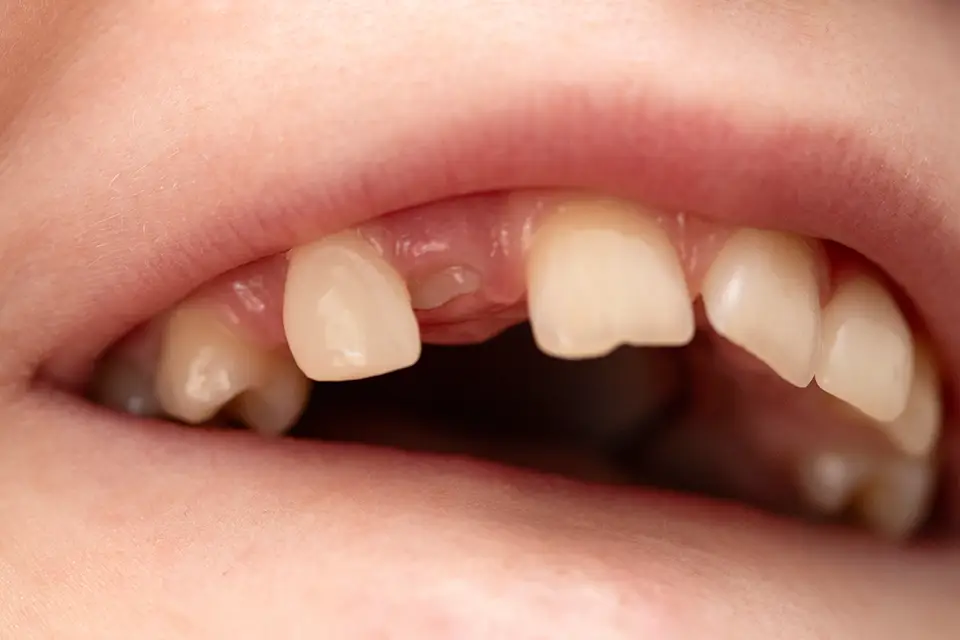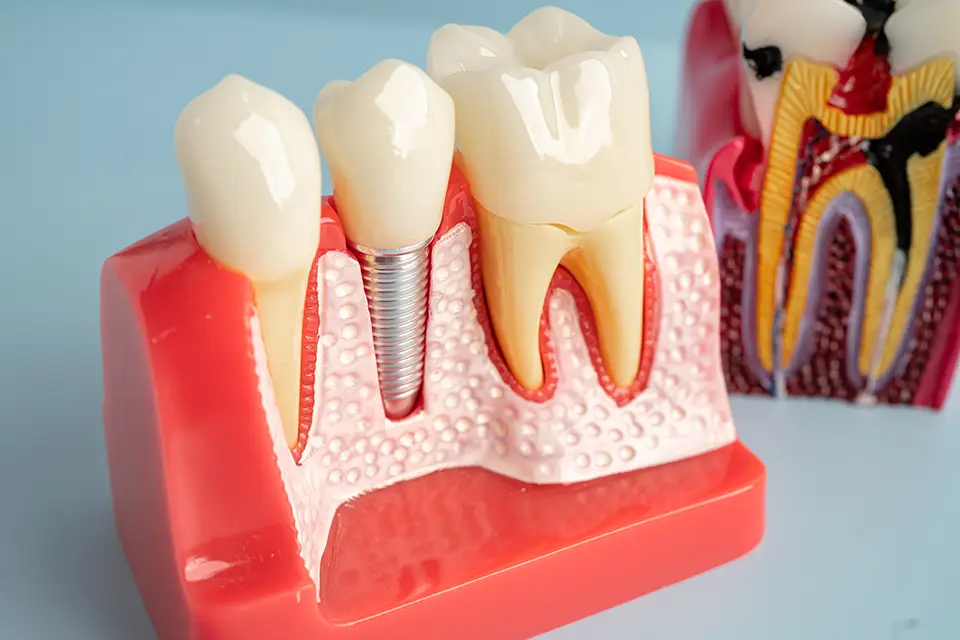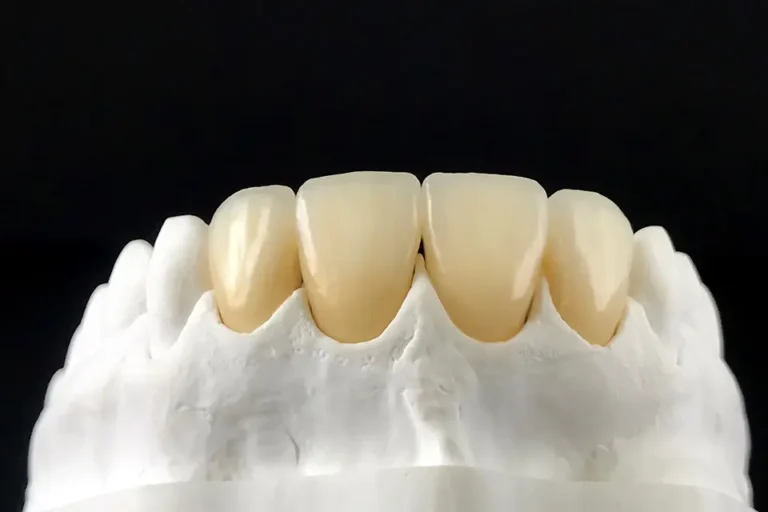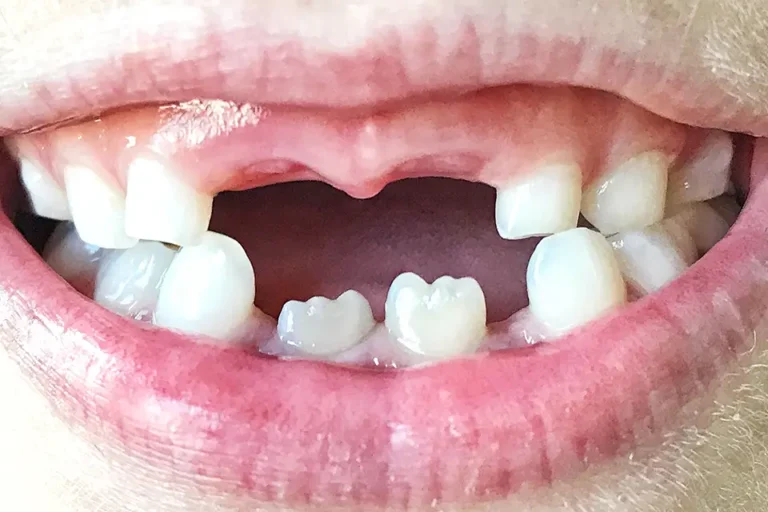Dental implants are a popular and effective way to replace missing teeth. They offer a natural-looking, long-lasting solution that can significantly improve the appearance and function of your smile. However, like any other surgical procedure, dental implants have the potential to cause side effects. While the procedure is generally safe and has a high success rate, you should be aware of the common side effects and risks to make an informed decision.
Common Side Effects of Dental Implants
Although most patients recover smoothly from dental implant surgery, there are some common side effects that you should be aware of:
- Swelling and Bruising Around Gums and Face: Following the procedure, it is expected to experience swelling and bruising in the gums and surrounding facial area. This is part of the body’s natural healing process and usually resolves within a few days to a week.
- Pain and Tenderness at the Implant Site: Some discomfort is expected, particularly in the first few days following surgery. You can manage pain with prescribed or over-the-counter medications, and it usually subsides gradually as the healing process progresses.
- Bleeding at the Surgical Site: Minor bleeding is common for the first 24 to 48 hours after the implant placement. In order to reduce bleeding, patients are typically advised to avoid strenuous activities and adhere to post-surgery instructions.
- Minor Inflammation and Gum Sensitivity: As the implant heals, the gums surrounding it may become sensitive or inflamed. This usually improves within a week, but it can sometimes take longer.
Potential Complications and Risks
While dental implants are generally effective, complications can arise in certain situations. Some potential risks are:
- Infection at the Implant Site: Infections can develop around the implant, particularly if proper oral hygiene is not maintained. Redness, pain, and discharge around the site are all possible symptoms. Treatment options often involve antibiotics, and in severe cases, removal of the implant may be necessary.
- Nerve Damage: An implant placed too close to a nerve can cause nerve damage. This may result in numbness or tingling in the lips, chin, or tongue. While these symptoms may subside over time, they can also be long-lasting or permanent.
- Sinus Issues: If the implant extends into one of the sinus cavities during the placement of implants in the upper jaw, there is a risk of sinus perforation. Symptoms of sinus issues include discomfort or a feeling of pressure in the sinus area. In order to resolve this complication, additional treatment may be necessary.
- Bone Loss and Implant Failure: Osseointegration, or the process by which an implant fuses with the jawbone, is critical to the success of dental implants. In some cases, the bone may not fully integrate with the implant, resulting in implant failure. Smoking, insufficient bone density, and poor oral hygiene are all risk factors for this complication.
- Peri-implantitis: Peri-implantitis is a gum disease affecting the tissue and bone surrounding the implant. If left untreated, it can cause inflammation, bone loss, and, eventually, implant failure. Preventing peri-implantitis entails practicing good oral hygiene, getting regular dental checkups, and avoiding smoking.

Managing and Minimizing Side Effects
Following these aftercare tips will help ensure a smooth recovery and minimize the side effects of dental implants.
- Proper Aftercare: To relieve pain and inflammation, apply cold compresses to the affected area for the first 24 hours after surgery. Your dentist may prescribe medications to help you manage pain and swelling.
- Maintain Oral Hygiene: Good oral hygiene is essential for preventing infection. To clean the area, gently rinse your mouth with a saltwater solution. Avoid brushing directly on the surgical site until your dentist advises.
- Dietary Guidelines: For the first few days after surgery, stick to soft foods to avoid irritating the implant site. Yogurt, mashed potatoes, and smoothies are excellent choices. Avoid hot, spicy, or hard foods that may irritate the surgical site.
- Follow-Up Visits: Schedule appointments so your dentist can monitor your healing progress and address concerns. Contact your dentist immediately if you notice any unusual symptoms, such as severe pain, prolonged swelling, or infection.
Frequently Asked Questions (FAQs)
How long does it take to recover from dental implant surgery?
Depending on the individual, recovery can take anywhere from a few days to a few weeks. Swelling and discomfort usually subside within the first week.
2. Are dental implants painful?
The procedure itself is performed under local anesthesia so that you won’t feel pain during surgery. Post-surgery discomfort is normal, but you can manage it with medications.
3. Can dental implants fail?
Yes, although rare, dental implants can fail due to factors such as poor osseointegration, infection, or underlying health conditions.
Dental implants are a reliable and long-lasting tooth replacement option, but as with any surgical procedure, they have potential side effects and risks. Understanding these side effects and following your dentist’s aftercare instructions will help you avoid complications and increase your chances of a successful outcome.
If you have any concerns or want to learn more about dental implants, please contact Zara Dental in Houston, Texas. Our experienced team is here to assist you in achieving a healthy and confident smile. Schedule your consultation now!








